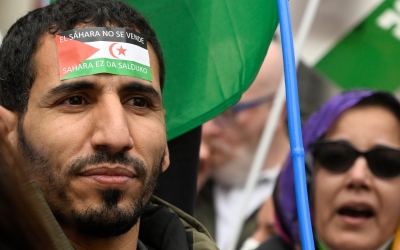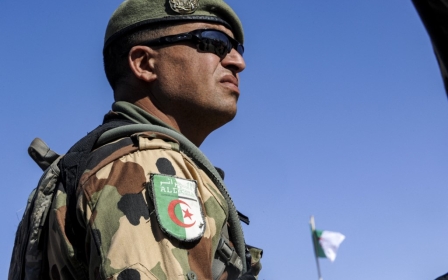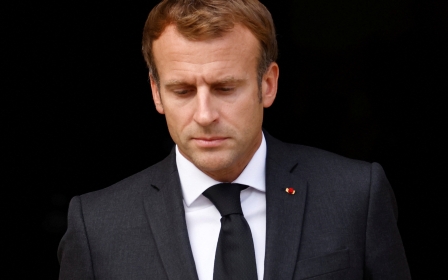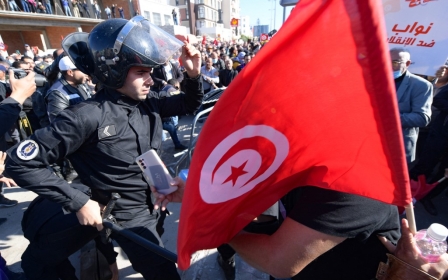Morocco is a mis-step away from making another enemy in the Maghreb
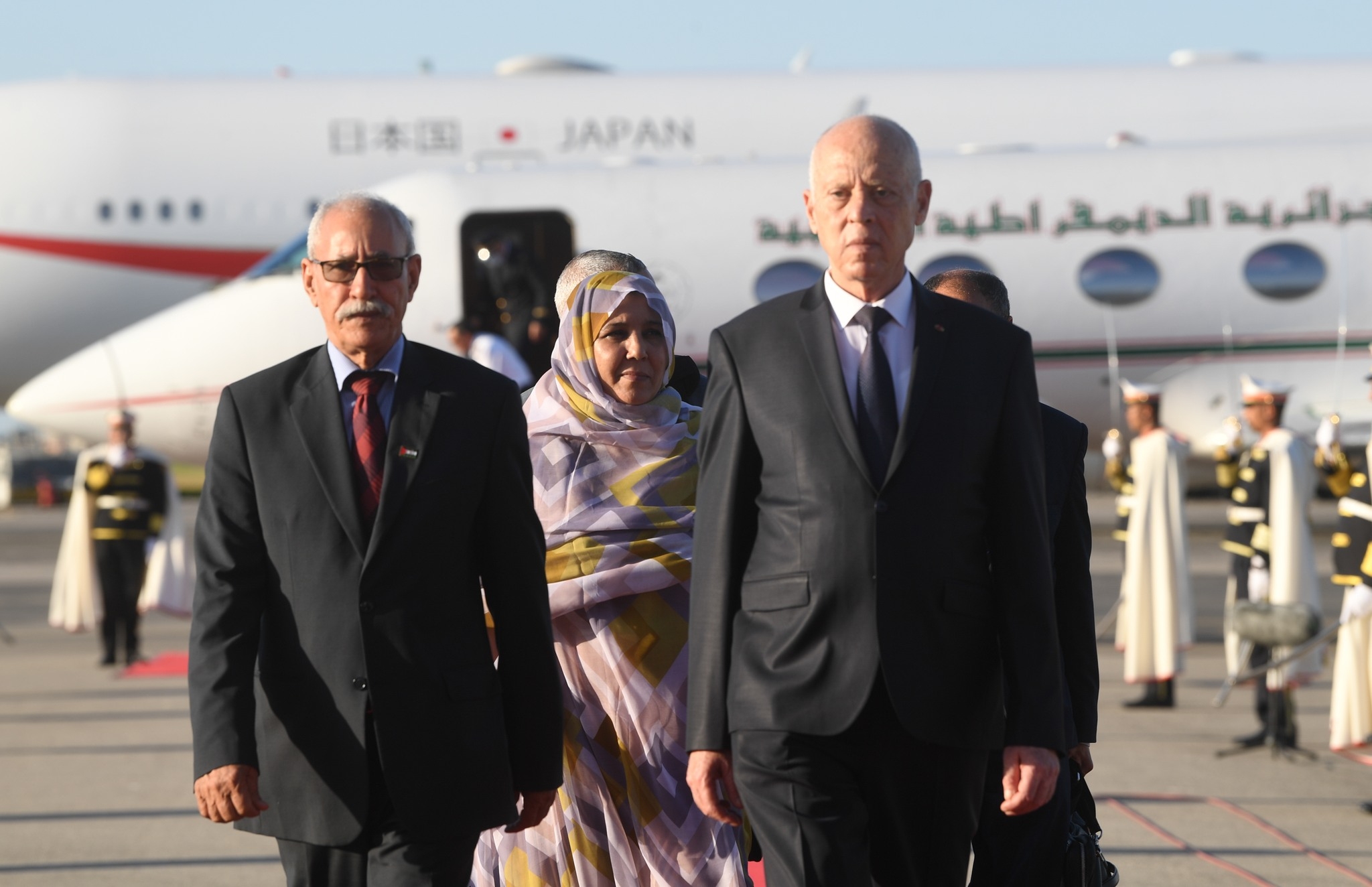
A misfortune, it is said, never happens alone. And the Moroccan regime had its share last week. Several, all at once, and of a kind that shake established foundations.
During a public speech last week, King Mohammed VI was explicit, and even threatening: “I would like to send a clear message to everyone: the [Western] Sahara issue constitutes the prism through which Morocco considers its international environment. It is also clearly and simply the yardstick that measures the sincerity of the friendships and the effectiveness of the partnerships that our nation establishes with others.”
In summary, the Alawite sovereign explained that there could be no half measures in the Western Sahara conflict, and that foreign states had to pick a side: with or against Morocco.
What Morocco did not expect was to have to cross swords with a Maghreb country other than Algeria, and yet that is what happened the same week
But a few days later, in an interview on Spanish public television, the European Union’s high representative for foreign affairs, Josep Borrell, himself a Spaniard, declared that “the position of the Spanish government was and remains the same as the position of the EU: namely, that the Sahrawi people must be consulted so that they themselves decide their own future”.
This declaration provoked shock and anger in Rabat, where foreign minister Nasser Bourita immediately cancelled a meeting that had been scheduled with the European diplomat for September.
New MEE newsletter: Jerusalem Dispatch
Sign up to get the latest insights and analysis on Israel-Palestine, alongside Turkey Unpacked and other MEE newsletters
Since Borrell is Spanish and hails from the same party as Spanish Prime Minister Pedro Sanchez, Moroccans wondered whether he was speaking on behalf of the Spanish government or the EU.
According to the Spanish media, Bourita called Borrell directly to demand that he immediately rectify his statement. The European diplomat complied, notwithstanding some linguistic contortions. Bourita reportedly did the same with Spain’s foreign minister, Jose Manuel Albares, who was himself pushed to reaffirm Spain’s official support for Morocco’s autonomy proposal.
Tensions with Tunisia
What Morocco did not expect was to have to cross swords with a Maghreb country other than Algeria, and yet that is what happened the same week.
By literally rolling out the red carpet for the leader of the Sahrawi Arab Democratic Republic and the Polisario Front, Brahim Ghali, who came to Tunis to participate in the eighth Tokyo International Conference on African Development (Ticad) on 27-28 August, Tunisia angered Morocco on the same subject as Spain.
Tunisian President Kais Saied was not content to receive Ghali at the airport in the same way he does for other diplomatic delegations; rather, he received him as a head of state – to the great dismay of Rabat. The Moroccan foreign ministry was quick to react by publishing a harsh news release against Tunisia, which has recently “multiplied its negative positions and actions regarding the kingdom of Morocco”.
The Moroccan media reminded people that Tunisia had abstained in October 2021 from voting on a United Nations Security Council resolution concerning the Western Sahara. As punishment for the latest transgression, Morocco cancelled its participation in Ticad and recalled its ambassador to Tunisia for consultations.
Some observers believe it was the treatment of Ghali as a head of state, rather than his invitation, that angered Moroccans. When Mozambique treated Ghali as a head of state during the 2017 Ticad conference, tensions erupted between Morocco and Mozambique, but they were able to overcome the feud. Tunisia, however, is a “brotherly” Maghreb state with which Morocco has close historical relations.
To resolve its diplomatic conflicts, Morocco often relies on a traditional posture: get angry, issue threats, cut a few bridges, and wait for the other party to take the first step to resolve the crisis. This tactic works well in Europe, which is used to Morocco’s sudden moves due to its position as a muscular and ruthless police officer, as we recently saw again on the Melilla border.
Yet, with Tunisia, formerly ruled by the “friendly” Moncef Marzouki, whose own father is buried in Morocco, Rabat’s posture has failed. Tunisia’s current regime now resembles Rabat in its authoritarianism and susceptibilities.
In its response, the Tunisian foreign ministry categorically rejected the Moroccan news release, accusing it of “prejudices against the Tunisian Republic”. Invoking the history of Ticad meetings where the presence of Ghali did not pose insurmountable problems, and reaffirming Tunisia’s position of “neutrality” on the Western Sahara issue, the news release announced the recall of Tunisia’s ambassador in Rabat. An eye for an eye.
Risk of isolation
As is customary and predictable, a Moroccan media campaign has since been launched against Tunisia to express anger. And despite some gestures of goodwill on both sides, Morocco has still not finalised its reconciliation with Spain. Madrid suspects Rabat might be dragging out certain decisions to obtain more concessions.
Relations with Algeria, meanwhile, are totally cut off – and at the slightest misstep, the region could find itself mired in an armed conflict that no one wants.
The Maghreb is not Europe or the West. It is the very essence of Morocco
With France, whose president recently paraded for three days in Algeria to the applause of his hosts, past acquaintances are no longer what they used to be. The refusal of visas to Moroccan elites, including former ministers, proves that Paris has not yet forgiven Morocco for having spied on its president and other members of government via the Israeli spyware Pegasus.
Finally, by questioning the existence of Mauritania, the Moroccan Muslim scholar Ahmed Raissouni – who, contrary to what the Algerian media reports, is not close to the Royal Palace – caused a very inopportune diplomatic shock with Nouakchott, and his remarks cost him the presidency of the International Union of Muslim Scholars.
Everyone in Rabat knows that the Morocco-Tunisia crisis does not bode well. Morocco already has an irreconcilable enemy in the region, the hated Algeria. If we must add to this mix Tunisia, which the Moroccan media now labels a new ally of Algiers, Rabat will find itself totally isolated in the Maghreb. And the Maghreb is not Europe or the West. It is the very essence of Morocco.
The views expressed in this article belong to the author and do not necessarily reflect the editorial policy of Middle East Eye.
This article has been translated from the MEE French edition.
Middle East Eye delivers independent and unrivalled coverage and analysis of the Middle East, North Africa and beyond. To learn more about republishing this content and the associated fees, please fill out this form. More about MEE can be found here.



